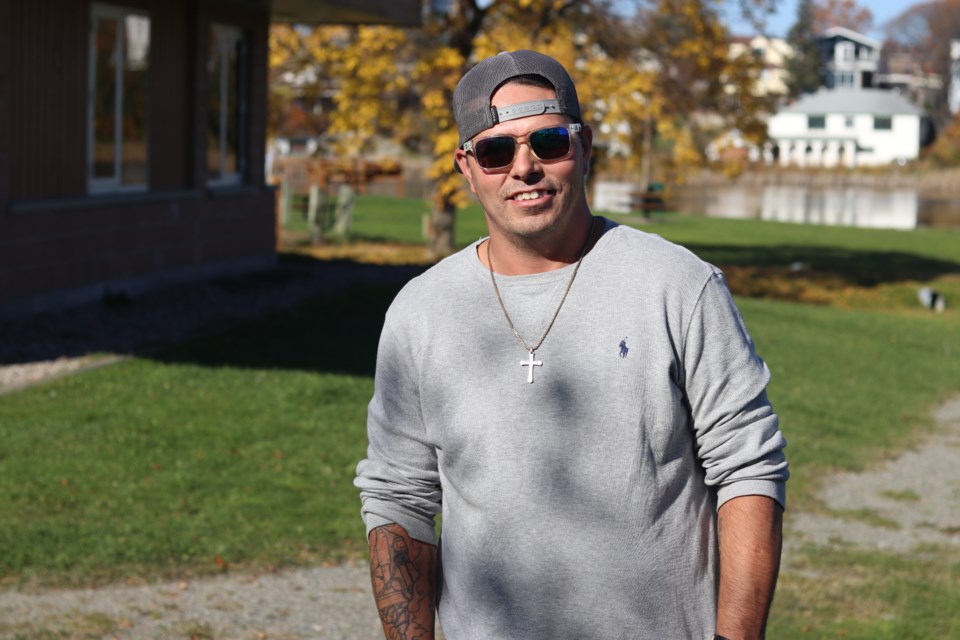It’s been a long journey for Jay Howson, who’s been sober for five years now.
Howson was a speaker at the World Homeless Day event held by Living Space at Gillies Lake today. The goal is to help reduce the stigma around homelessness.
Howson, 40, was born and raised in Chapleau.
He grew up with six older brothers and two older sisters. Howson’s father was his best friend, so when he died, it “took a turn for the worst.” Howson was 16 at the time.
“I got dealing in with the wrong crowd. It gave me a life of darkness and addictions, so I suffered from that, in and out of jail, for over 18 years of my life,” he told the crowd gathered at the event.
Howson said he’s tried different rehabs but nothing worked.
About five years ago, he heard about a Christian rehab program called Next Step Farms in Porcupine. In that program, he took care of the animals, did gardening and studied the discipleship program.
He graduated from the program in 2016. He also said he was the first graduate.
“I want to thank the Lord for doing all that for me. I continue to seek Him and ask Him to guide me, each and every day, and keep living for Him,” he said. “That’s what life is all about. Waking up, fighting every day and telling yourself it’s going to be good.”
Ever since then, he’s been sober.
“It’s still a struggle every day, waking up every day. It’s still on the back of my mind with depression and stuff like that,” he said. “But I tell myself ‘I’m a winner, you can do it, things are going to be good.’”
Howson never knew about his background and where his family was from until about a year ago.
From his relative, he learned that his family comes from Long Point First Nation, Quebec. His great-grandmother married a white man, so her status was taken away.
Howson felt it was a turning point in his life. He applied to get his status back and recently learned it's been approved.
“The challenge was finding all the information to gather up,” he said in an interview. “Even growing up, I was recognized as a Native person, so I was treated differently, but I never had the benefits to go along with that. I was just another Native person on the street using drugs, alcohol. Now, it’s all changed.”
Howson now lives in Timmins. He’s married, has four children and he’s been volunteering with Living Space.
“If you’re dealing with stuff, don’t try to hold it in. Talk to someone about it, don’t try to deal with it on your own,” Howson said. “It wasn’t until I was able to talk about what had happened to me — abuse and sexual molestation — when I finally got free from it.”
During the event, Living Space volunteer co-ordinator Kelsey MacDonnell also read a story of another person with a lived experience who couldn’t attend the event.
Attendees then took part in an activity known as the privilege walk.
Typically, participants line up in a horizontal line and take a step forward or back if the statements applied to them.
The statements can be along the line of, “Take a step forward if you never had to wonder where your next meal would come from,” “Take a step forward if you’ve never had a physical disability” or “Take a step forward if you can show affection for your romantic partner in public without fear of ridicule or violence.”
The activity is intended to promote understanding and acknowledgment of privileges and marginalization in society.
O’Gorman High School teacher Darrell Aide brought his civics class students to the event to learn more about homelessness.
“Homelessness is a civic issue that we already discussed in class. It was also a major issue in the federal election we’ve been covering with connection to affordability,” he said. “So we took this opportunity to come out and learn more about this civic issue."
